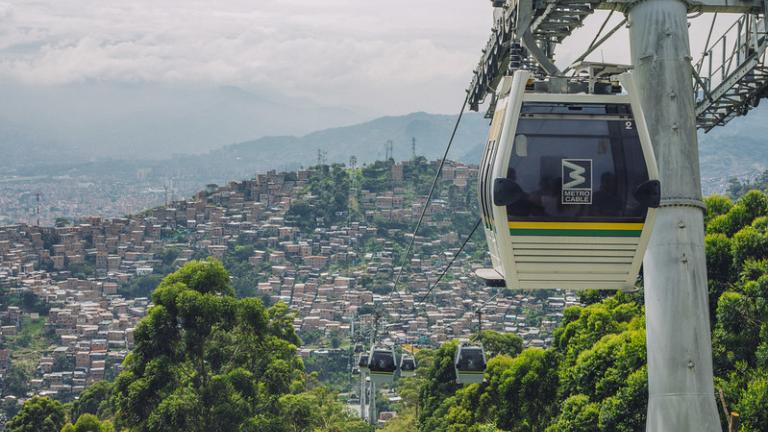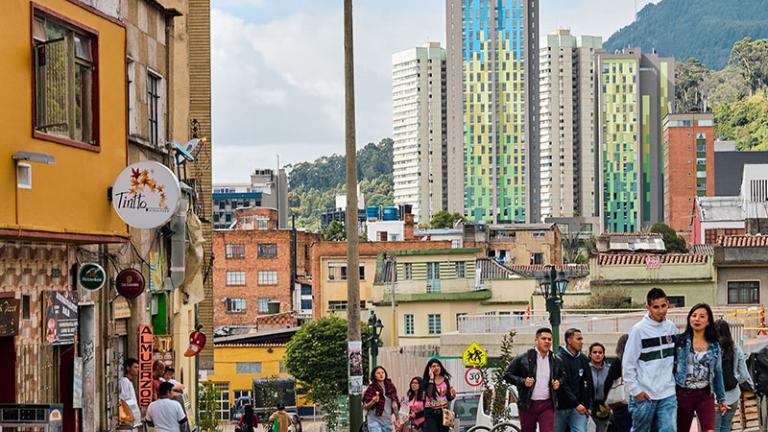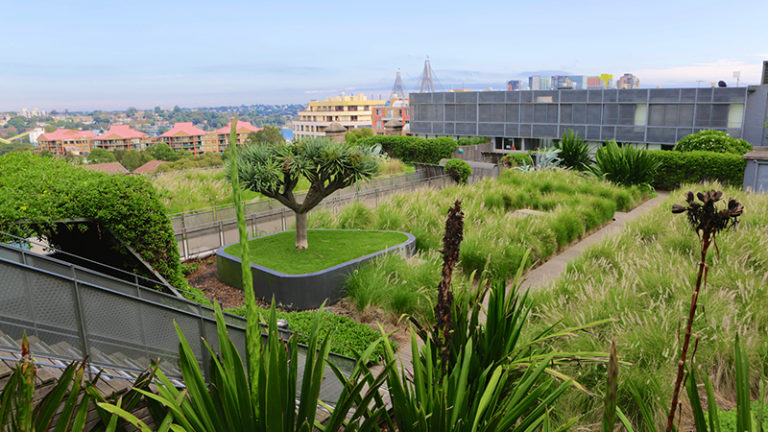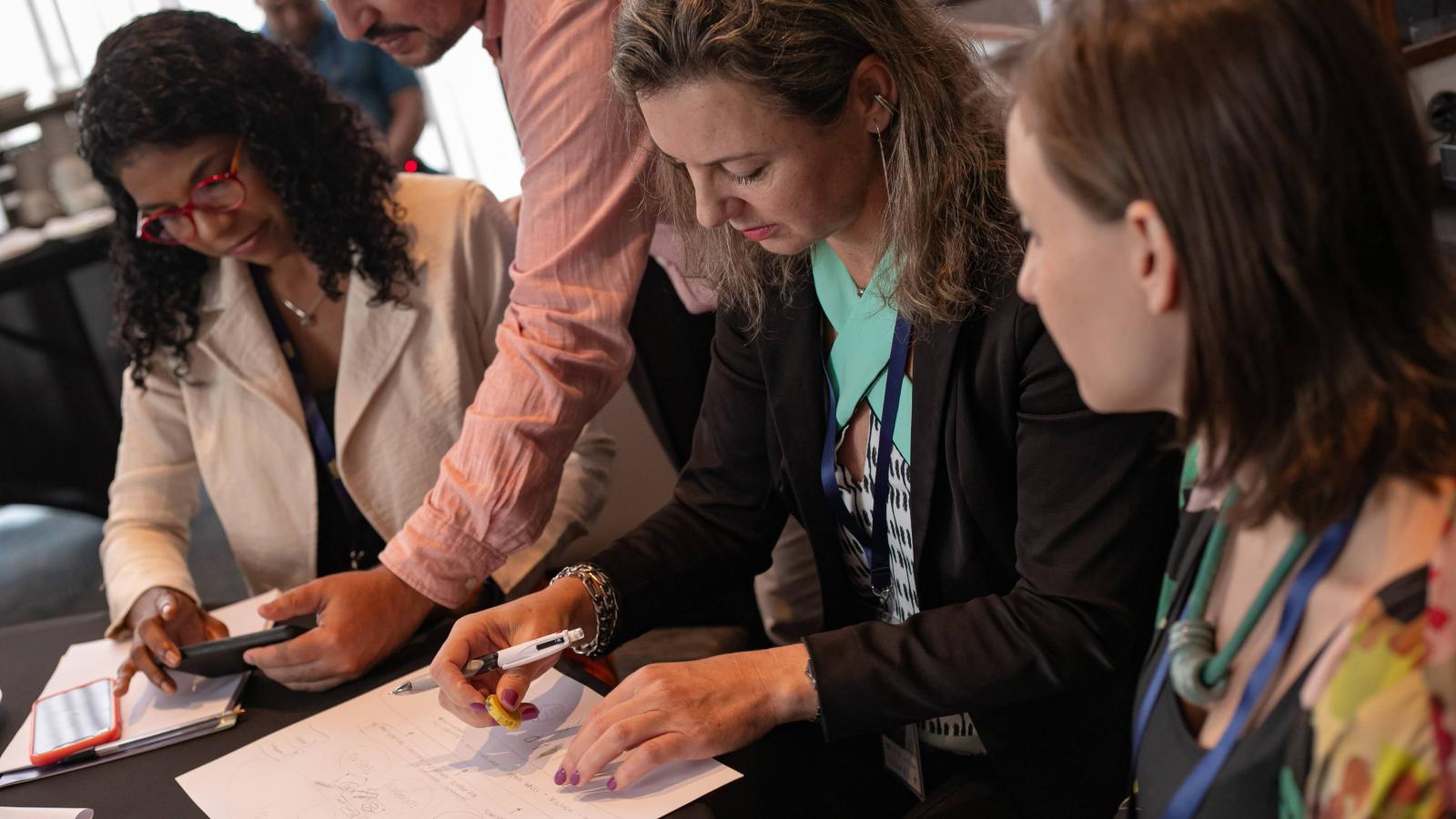Online City Academy
The UrbanShift City Academy offers city officials and urban practitioners open access to eight self-paced online courses, focused on urban planning themes that are critical to shaping low-carbon, climate-resilient and inclusive cities. The courses have been developed by experts at the UN Environment Programme, World Resources Institute, C40 Cities, ICLEI – Local Governments for Sustainability, and other global partners.
UrbanShift’s work spans eight broad topics, which represent the scope of our local projects as well as our global capacity-building activities. For each of these topics, our team’s technical experts have designed a robust, self-paced course consisting of peer-reviewed knowledge, research and case studies presented in an interactive learning format. The aim? To provide you with a foundational understanding of each topic so you can support your city on its path toward a green, climate-resilient future.
Explore the Courses
Navigate to the course pages to learn more about the curriculum and enroll.

Accessing Urban Climate Finance
The goal of this course is to increase the capacity of city-level actors to mobilize and access finance for sustainable and climate-resilient urban infrastructure projects. It offers guidance to subnational governments to better understand the planning, design, and financing processes for these critical projects, shaping net-zero cities that are able to meet the needs of all their residents.

Accommodating Urban Growth
Municipalities, especially in the rapidly growing cities in Global South, must now prepare their cities to accommodate their anticipated growth through both densification and climate-resilient urban expansion. This course provides the conceptual framework, the methodologies, the statistical evidence, the case studies, and the readings required to gain both the knowledge and the confidence to plan and implement these strategies.

Circular Economy Strategies for Sustainable Development
Initiating a circular economic system in cities can bring a wealth of economic, social, and environmental gains. A circular model reduces costs and eliminates waste while fostering economic productivity and green, local jobs. In this course, learn how your city can benefit from moving away from the “take-make-waste” economic system and implementing circular strategies.

Green & Thriving Neighbourhoods
Explore how to develop green and thriving neighbourhoods in your city with an integrated vision, a set of design strategies, and a step-by-step delivery roadmap. By emphasizing the importance of local context, design, and integration, this course will inspire you to think differently about neighbourhoods and provide the necessary tools to take action.

Integrated Climate Action Planning
Cities are at the forefront of the climate crisis. In this course, you will learn how cities can tackle climate change and build a more sustainable and just future. Explore how to develop a science-based climate action plan, inspired by the experiences and best practices of cities around the world.

Integrated Urban Planning
Targeted at urban decision-makers and planners, this course describes how to think about urban planning as an integrated process. You will learn about the concept of integrated urban planning, the benefits of integration, the process for IUP implementation, its applications in the global south through case studies and the use of data for decision making.

Nature-Based Solutions
Explore how cities around the world are turning to Nature-based Solutions to tackle some of their most pressing challenges. Find out about the key elements needed to implement contextually appropriate, multifunctional and cost-effective Nature-based Solutions in global South cities.

Urban Biodiversity
Learn how cities can protect biodiversity and secure the benefits of healthy ecosystems for all residents. This course focuses on biodiversity strategy in the context of city priorities, constraints, and planning processes. It provides learners with tools they can use to integrate nature-supportive actions into wider urban practices.

